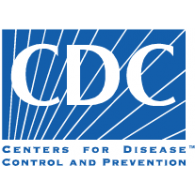0920-24DM Interview Guide for Consumers with Past Antimicrobial Re
[OS] CDC/ATSDR Formative Research and Tool Development
Attachment 10 - Interview Guide - Consumers with Past Infection_2.12.24_V3
[NCZEID] Formative Communications Assessment on Antimicrobial Resistance
OMB: 0920-1154

 WS-CDC
ARX – ARX Interview Guide
WS-CDC
ARX – ARX Interview Guide
Form Approved
OMB Control No.: 0920-1154
Expiration date: 03/31/2026
Antimicrobial Resistance Communications and Media Support Services
Interview Guide for Consumers with Past Antimicrobial Resistant Infections on Antimicrobial Resistance
February 12, 2024 V3
Introduction; approx. 5 minutes
Welcome! Thank you for speaking with me today. My name is NAME. I’m an independent researcher with KRC Research.
The sole funder of today’s discussion is the Centers for Disease Control and Prevention—CDC. Our conversation today will focus on a health topic.
I’m a professional researcher, not a CDC employee or a subject matter expert on health topics. My role is to learn from you during our conversation over the next 60 minutes or so.
There are no wrong answers here. I am simply interested in your honest opinions and experiences. However, if you feel uncomfortable answering a particular question, you do not have to.
Because privacy is important, I’m going to share our Privacy Policy.
I will protect your privacy for today’s discussion, and nothing you say will be reported in association with your name. We will use first names only during the conversation. You may choose to use a nickname or any other name you prefer.
Your participation is voluntary—you do not have to answer anything you are uncomfortable with.
I am audio- and videorecording for transcribing of our discussion. Because I am having several discussions like this one, it is important for me to have an accurate record of today’s conversation.
Let’s start with introductions. Can you share…
Your first name, a nickname, or a name you’d like to use for today’s conversation
What state you’re located in
Any health topics you find yourself paying attention to these days
Today we’re going to be talking about the topic of antimicrobial resistance. I understand that you’ve had a personal experience with this topic, is that right?
Thank you for sharing that. We’ll get into the topic and come back to your experiences shortly.
Unaided Awareness; approx. 8 minutes
To start, let’s think about the topic broadly. SHARE TERM ON SCREEN: antimicrobial resistance
What’s the very first thing that comes to your mind when you see this?
PROBE: What are you picturing? (Images, ideas, memories, situations)
PROBE: What are you feeling? (Uncertainty, boredom, concern, seriousness)
What does antimicrobial resistance mean?
What does the “resistance” mean? What has the resistance?
PROBE: Is it when germs become resistant, or the body becomes resistant? Resistant to what?
How does antimicrobial resistance happen?
PROBE: Who or what causes antimicrobial resistance? LISTEN FOR PERSONAL RESPONSIBILITY
What is an antimicrobial-resistant infection?
Here’s the definition I’ll be using for antimicrobial resistance. SHOW ON SCREEN
Antimicrobial resistance occurs when germs defeat the drugs designed to kill them, called antibiotics or antifungals. It does NOT mean your body is resistant to antibiotics or antifungals.
Resistant infections can be difficult, and sometimes impossible, to treat. If antibiotics and antifungals lose their effectiveness, then we lose the ability to treat infections and control these public health threats.
Antimicrobial resistance is an urgent global public health threat, killing at least 1.27 million people worldwide and associated with nearly 5 million deaths in 2019. In the U.S., more than 2.8 million antimicrobial-resistant infections occur each year. More than 35,000 people die as a result, according to CDC.1
How well does this match your own definition?
What else do you think is important to include when describing it?
Summary of AR Experience; approx. 10 minutes
In the next few minutes, I’d be grateful to learn more about your experience with bacterial or fungal antimicrobial-resistant infections. This is a personal subject, and you do not have to share more than you’re comfortable with. However, CDC and others will benefit from understanding your experience.
When you first saw the healthcare provider about an infection, what happened?
PROBE: What did they do? (Tests, physical examination, listen to your description of symptoms)
PROBE: What did you talk about?
Did they prescribe a drug? What kind? PROBE: an antibiotic, an antifungal
What did they tell you about the drug? PROBE: how it works, how to use it
What happened when you took the drug?
How did you come to learn that the infection was resistant to the drug?
How did healthcare providers describe the infection and resistance to you?
What did the provider say about the consequences of antimicrobial resistance?
What happened after you learned the infection was resistant? What was your experience like?
PROBE: How was it ultimately treated?
Challenges and Changes; approx. 12 minutes
What feelings did you have when you learned the infection was resistant to the drugs prescribed?
What did you want to know?
PROBE: What most worried or concerned you?
PROBE: What was most confusing if anything?
Where did you go for information about antimicrobial resistance?
Who or what did you trust?
What was most challenging? PROBE: Living with the infection, finding answers to questions, finding new treatments, paying for bills and expenses, etc.
Looking back, how has this experience impacted you since it happened?
PROBE: What’s changed?
Do you think differently about antimicrobial resistance now? How so?
PROBE: How did this change your perspectives or opinions?
PROBE: What’s different about what you thought before vs. now?
Do you do anything differently now? What, and why? PROBE: Do things more/more often, do things less/less often
PROBE: Why do you do things differently?
Looking back, do you wish anything would have been different for you before the infection?
PROBE: About knowledge, information, or other resources?
PROBE: About interactions with healthcare providers?
PROBE: About actions to reduce risks?
Summary Assessment of AR Today; approx. 7 minutes
How do you describe the seriousness of antimicrobial resistance?
Is that different from before you had the infection?
How would you describe the scope of the problem? How big is this problem?
Who does it involve or affect?
Do you feel you can have an impact on this issue? How so?
Is your opinion different from before you had the infection?
What do you most wish other people knew about antimicrobial resistance?
PROBE: What misconceptions do you wish were cleared up?
PROBE: What it is, how it happens, who’s at risk, how it impacts people
What do you most wish other people would do about antimicrobial resistance?
PROBE: What else can someone do to combat antimicrobial resistance?
PROBE: What would you tell people to do to protect themselves and reduce risk?
What would motivate people to pay more attention to antimicrobial resistance and be most likely to take action to protect themselves and others? PROBE: Facts, stories, risks, etc.
Actions to Combat AR; approx. 8 minutes
I’d like to talk about actions to protect oneself and others from antimicrobial-resistant infections.
Do you take any actions today specifically to protect yourself, your family, or your community from antimicrobial-resistant infections? Which actions?
I’m going to share some information that CDC has produced about combatting antimicrobial resistance. SHARE ON SCREEN: “ACTIONS TO PROTECT YOURSELF” ONE PAGER; READ AND ALLOW TIME TO REVIEW
What’s your first reaction to this?
What stands out? Can you point to anything specific?
What’s new or surprising?
Do any steps seem…
Impactful or likely to make a big difference? Why?
Less impactful? Why?
Which of these do you take today that you haven’t already mentioned? Why?
What are the one or two simplest things someone could do to help fight this problem?
Terminology; approx. 5 minutes
In the last few minutes, we’re going to discuss words, terms, and language. SHARE TERMS ON SCREEN: antimicrobial resistance, antibiotic resistance, antifungal resistance, drug resistance, superbug.
What differences do you perceive between any of these terms?
What’s different in what they mean?
What’s different in how they feel?
Which of these terms seems the clearest?
Which feels like the best way to describe when germs defeat the drugs designed to kill them? Why?
Which terms feel most urgent or serious?
Thank you for your insights. We’ll wrap up with a closing question.
Is there anything else about your experience with antimicrobial resistance that you think CDC and others should know about this problem?
MODERATOR THANK AND DISMISS
1 Sources: https://www.cdc.gov/drugresistance/about.html and https://www.cdc.gov/drugresistance/about/5-things-to-know.html
Public reporting burden of this collection of information is estimated to average 60 minutes per response, including the time for reviewing instructions, searching existing data sources, gathering and maintaining the data needed, and completing and reviewing the collection of information. An agency may not conduct or sponsor, and a person is not required to respond to a collection of information unless it displays a currently valid OMB Control Number. Send comments regarding this burden estimate or any other aspect of this collection of information, including suggestions for reducing this burden to CDC/ATSDR Reports Clearance Officer, 1600 Clifton Road NE, MS H21-8, Atlanta, Georgia 30333; ATTN: PRA 0920-1154
| File Type | application/vnd.openxmlformats-officedocument.wordprocessingml.document |
| Author | Laura Koehler |
| File Modified | 0000-00-00 |
| File Created | 2025-05-19 |
© 2026 OMB.report | Privacy Policy